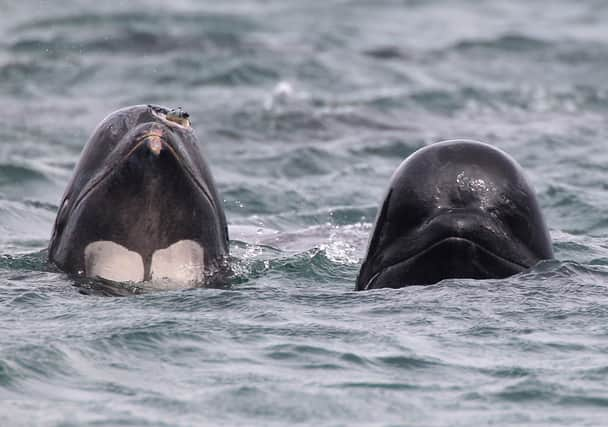Toxic chemicals: Whales and dolphins in UK waters 'exceeding thresholds' of POPs - chemicals banned in 2001


Nearly half of the whales and dolphins found in UK waters over the past five years contained harmful concentrations of chemicals, an investigation has found. The study revealed that pollutant concentrations were highest in killer whales, bottlenose dolphins and white-beaked dolphins, and were also significantly higher in animals that had been stranded on more industrialised coastlines.
Levels of PCBs, a group of highly dangerous and persistent chemicals that do not degrade easily, were 30 times the concentration at which the animals would begin to suffer health impacts among orcas stranded in the UK. The researchers said that “more effective international elimination and mitigation strategies are urgently needed to address this critical issue for the global ocean health.”
Advertisement
Hide AdAdvertisement
Hide AdPersistent organic pollutants (POPs) are still widespread and pervasive in the environment despite their ban and restriction under the 2001 Stockholm Convention. The toxins, initially taken up by plankton at the bottom of the food chain and not susceptible to being broken down, increase in concentration the higher up the chain they go, the researchers found.
In 2017, Lulu, an orca from the UK’s last resident pod, was found dead on Tiree in Scotland. She was discovered to have one of the highest concentrations of toxic pollutants ever found in a marine mammal. Extreme levels of PCBs were found in her blubber, more than 100 times the limit of 9mg/kg regarded as safe.
It comes after a recent study found that critically endangered dolphins in Australia contain the highest level of ‘forever chemicals’ reported anywhere in the world. On average, the Burrunan dolphins had a concentration of PFAS chemicals 10 times higher than the amount that would normally result in liver toxicity and other health issues. Per-and polyfluoroalkyl substances, known as PFAS, are commonly found in food packaging, firefighting foam and non-stick cookware. The group of chemicals is known for not breaking down, with long-term exposure sometimes leading to health problems.
Comment Guidelines
National World encourages reader discussion on our stories. User feedback, insights and back-and-forth exchanges add a rich layer of context to reporting. Please review our Community Guidelines before commenting.
